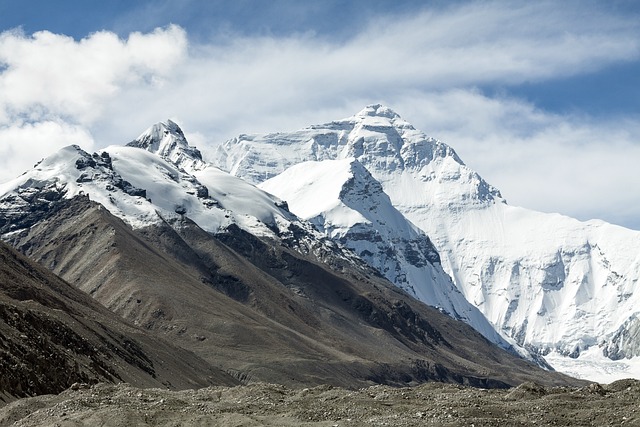Climate change threatens 'Asia's water tower' by accelerating the melting of glaciers and snowpack, causing water scarcity, disrupting moisture pathways, and potentially impacting the livelihoods of billions of people.
Summary
Tibet, known as the "Water Tower of Asia," supplying water to 2 billion people and vital ecosystems, faces escalating threats from shifting climate patterns and human activities. Researchers are identifying essential policy adjustments as glaciers melt rapidly due to rising temperatures, triggering a chain reaction of water scarcity, impacting food, energy security, and intensifying challenges from warming oceans. Predictions indicate that 84% to 97% of High Mountain Asia and the Tibetan Plateau will confront significant water deficits by the century's end. Urgency drives the researchers, led by Yadu Pokhrel, to understand and strategize for the global repercussions of altered water conditions and disrupted moisture pathways, navigating towards a more resilient future.

Tibet, renowned as the "Water Tower of Asia," furnishes water to approximately 2 billion people and upholds vital ecosystems in the High Mountain Asia and Tibetan Plateau regions, which serve as the origins of numerous major Asian river systems.
This locale, however, stands as one of the most susceptible to the compounding consequences of shifting climate patterns and human interventions. At this juncture, Michigan State University experts are pinpointing necessary policy adjustments essential for bracing against forthcoming impacts anticipated by climate models.
Accelerating Glacial Melting and Water Scarcity
The rapid dissolution of glaciers and snow cover, attributed to escalating regional temperatures, has triggered an unparalleled dip in water availability. This occurrence creates a chain reaction affecting water, food, and energy security. Additionally, MSU researchers have unearthed that the warming of the northern Atlantic and Indian oceans is intensifying these challenges, imperiling water stability within the area and disrupting the intricate equilibrium of atmospheric water and its conveyance.
Drawing attention to the sweeping scope of the issue, Yadu Pokhrel, an associate professor in MSU's College of Engineering, underscores, "The implications are global. The ocean's warming dynamically alters the origins and pathways of moisture across various global regions, directly rippling into the heart of the Asian water tower."
Harnessing the predictive prowess of climate models alongside an intricate framework that meticulously traces the inception, trajectory, and culmination of atmospheric moisture movement worldwide, Pokhrel and his accomplished team illuminate a somber prognosis. Their analysis predicts that an astonishing 84% to 97% of High Mountain Asia and the Tibetan Plateau will confront a substantial void in water reserves as this century draws to a close.
Navigating the Future of Asian Water Security
Escalating local warming exacerbates moisture depletion, creating an unrelenting spiral of dwindling water availability.
Pokhrel is unequivocal about the magnitude of this revelation, articulating, "The repercussions are profound. Altered water conditions in this region, be it scarcity or excess, reverberate through economies and livelihoods across neighboring nations. The global repercussions could be immense."
Urgency steers Pokhrel and his visionary team, compelling them to take proactive strides in anticipation of what lies ahead. He encapsulates their mission: "Our objective is clear—unravel the holistic impacts of climate flux, delve into community-level ramifications, and ultimately forge strategies to navigate the uncharted waters of the future."


